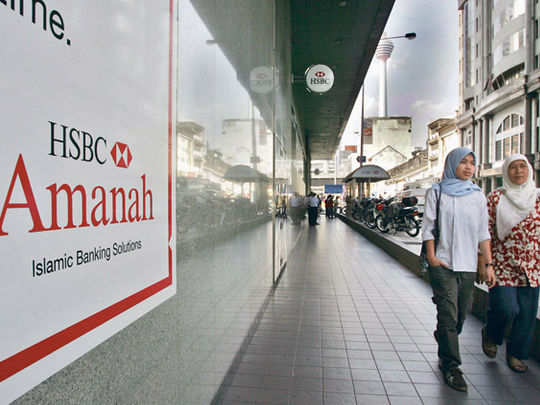
Dubai: Asian demand should help the Islamic bond market recover in the second half from the impact of the global financial crisis, according to HSBC Amanah deputy chief executive Razi Fakhi.
High-profile sukuks coming from Indonesia and Malaysia have served as a catalyst, Fakhi said in a telephone interview with Reuters, adding that the company continues to see demand from issuers.
"Sukuk is a critical offering in Islamic finance and is unlikely to fade out," he said. "We are quite optimistic that we will see more issuers coming in the second half."
Fakhi declined to outline Amanah's current pipeline for mandates, citing a quiet period ahead of second quarter earnings. But in an interview with Reuters in February, he said the company was optimistic that it would meet or exceed the 15 mandates it had in 2009 for sukuk.
First half issuances
According to Reuters data, HSBC has already served as Islamic bond manager on 13 sukuk issues in the first half of the year. HSBC Amanah is a wholly-owned unit of Europe's biggest bank, HSBC.
HSBC last week opened its first Islamic branch in Qatar its first Middle Eastern branch outside Saudi Arabia for retail and corporate customers. Fakih said HSBC was responding to increasing demand for Islamic products in the country and expects Qatar to be "a market for significant growth potential going forward".
Fakih said HSBC sees opportunities to expand its Islamic offerings in corporate banking in Bangladesh in the future beyond its existing small retail presence there.
The company also hopes to expand into Islamic corporate banking in the sultanate of Oman but has no immediate plans to do so.
"I personally believe that the industry will continue to grow and it's very clear throughout the world," Fakih said.
Islamic finance is estimated to be close to a $1 trillion (Dh3.67 trillion) industry worldwide. Research firm Oliver Wyman expects industry growth of 30 per cent annually since 2000 to slow to about 20 per cent a year in the period up to 2012 as property markets drop sharply and liquidity dries up in the wake of the global financial crisis.
High-profile sukuk defaults have also tainted the industry and kept investors wary. Fakih said the nascent industry was experiencing "a hiccup" unrelated to its structure and will mature as a result by improving risk management and documentation.
Indonesia
Indonesia aims to raise up to $650 million (Dh 2,387) in a global sukuk issue in October and has appointed HSBC, Citigroup and Standard Chartered as underwriters, said a finance ministry official yesterday.
Indonesia said last month the sukuk, its second international Islamic offering in as many years, could be about $500-$600 million, as the world's most populous Muslim country seeks to capitalise on growing demand for sharia paper.
"Based on our document sent to the banks, we aim to get a maximum $650 million but it could be lower depending on the market reaction," Dahlan Siamat, the finance ministry's director in charge of Islamic financing, told Reuters.
"It will not be bigger than our previous sale last year," Siamat said.
The government sold $650 million in sovereign sukuk in 2009.
Indonesia has often failed to raise its target amount in regular local currency sukuk auctions in recent months amid investors' concerns over poor liquidity in the paper, in sharp contrast to strong demand for its conventional debt. The global issue would be used to help finance the budget deficit and as a benchmark.












